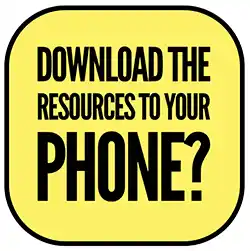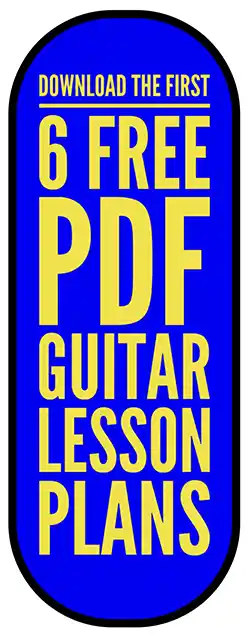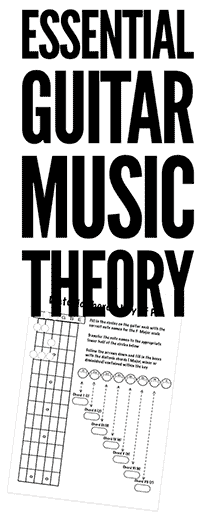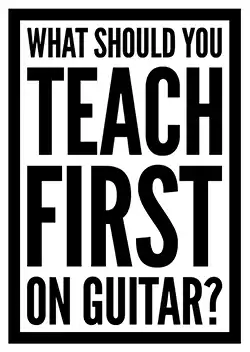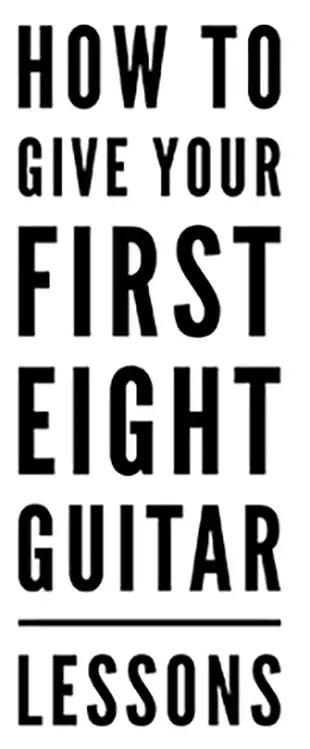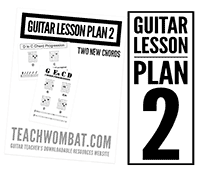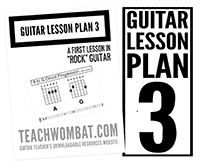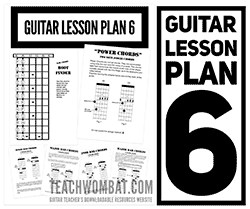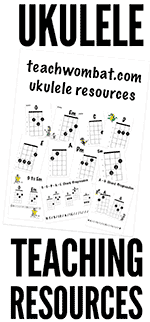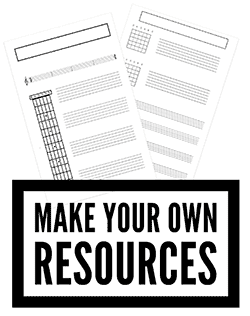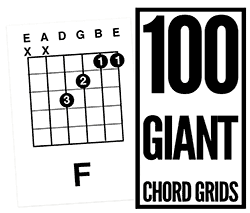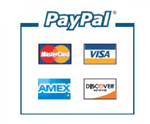
How good do I need to be to Teach Guitar?
A question I am often asked is....
How good do you need to be as a guitar player before you can teach it?
This site is packed with practical help, detailed advice and downloadable resources for anyone looking to become a guitar teacher but the simple reality is that you only really need three things

We can make the process of becoming a guitar teacher much easier by breaking it down to a few "first principles"
The Three Attributes of a Good Guitar teacher
1: You will need Talent
2: You will need the correct attitude to the job
3: You will need "a Plan"
We cant help much with the talent part but there is loads of advice on this website (see the "full menu" button at the top of this page) dealing with a wide range of teaching tactics and situations that will help you to develop a healthy approach and attitude to the job
We can also supply you with the plan for getting the job done using our guitar lesson plans and other essential resources such as (backing tracks and student handouts etc) to carry out that plan effectively
Download Free Guitar Lesson Plan PDFs
If you click one of the boxes above you will be able to download a bunch of free guitar lesson plans for both kids and adult learners or get your hands on a whole load of free guitar teacher's downloadable resources
FREE means FREE!
You won't be asked to sign up for anything or give us your email address so that we can use it to chase you all over the internet trying to part you from your hard earned money
All of the free resources on this site are exactly that FREE We hope that you like the free stuff enough to buy the entire package but thats entirely up to you

How good do you need to be in order to become a Guitar Teacher?
Teaching guitar for a living seems like (and is!) a great idea but just how good do you need to be before you can safely feel entitled to charge money for your fretboard knowledge and expertise? Is it better for a teacher to know everything about all modes in all keys or for them to be aware of a bunch of easy to play guitar songs (or fragments of songs) that their students would benefit from learning
If you take a look around there are some fantastic guitar players out there and it can be a little frightening to decide that that you are going to start a guitar teaching business. After all "Who are you to set yourself up as someone that people should seek out for instruction and guidance What makes you so special?" But the truth is that.......
The best guitar players don't necessarily make the best guitar teachers
The reality is that the best technical and theoretical guitar players do not always make the best guitar teachers. Teaching guitar to someone else is not about your own playing but about making the student's playing better and to do that you need something other than just the ability to fly around the neck at warp speed ten whilst reciting out loud the scale spelling for a Db lochrian mode.
The fact is that GUITAR TEACHING IS ABOUT GUITAR LEARNING, pure and simple. Sucessful education does not depend upon how well the teacher can play but on what the student learns.
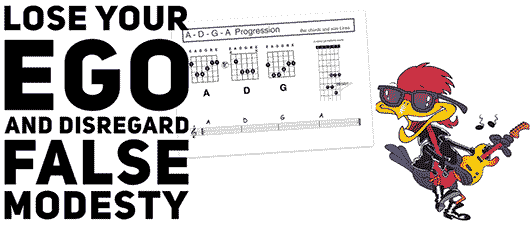
Guitar teachers need to learn to let go of their ego
Prior to deciding to teach guitar it is important to sit down and spend a little bit of time realistically assessing just where you (and your attitudes, attributes and capabilities) might fit into the bigger picture. You need to work out where you fit in to the bigger picture and make some level headed decisions with relation to your actual (or potential) position
Just about the first thing that you have to do in order to become a guitar teacher is Lose your Ego as your ego will encourage you to claim to be competent in areas that you are not really comfortable and confident in Equally you should ……..
Disregard your Insecurity and false modesty (which as the other side of the ego coin could end up in a situation where you underestimate your own capabilities and potential). No one will mind if you decide that you are not good enough to be a guitar teacher if you actually are but don't complain when your neighbouhood fills up with "worse" musicians than you who teach themselves out of a dayjob
Given that you can form a sensible attitude to ego and insecurity and as a result can go on to develop an honest opinion with regard to your own circumstances then it is time to turn your attention to the important task of identifying the types of student that will benefit most from your guitar lessons.
The secret of developing and maintaining a healthy guitar teaching business is in being able to attract (and retain) the right students. To attract those people who would benefit from the things that you can comfortably teach them. Think deeply about that now. The situation genuinely is that simple.

Identify the "right" customers for your guitar teaching business and "play to your strengths"
Becoming a guitar teacher who attracts the right customers is really just a question of common sense and aiming your instrumental capabilities towards an appropriate section of the market.
You need to set out to attract to attract a group of customers who you are capable of helping and who you would enjoy teaching the guitar to.
There are so many different styles of music out there that it is fair to say that nobody is great at them all. If you can't play jazz funk fusion guitar (and explain what you are playing and why to someone who has little or no understanding of it) then just don't teach it.Let someone else go after the intermediate guitar students and teach them all about the modes and semiquaver rhythms that are all over Jazz Funk
On the other hand if Jazz funk fusion Guitar is the only thing that floats your boat and you have dedicated yourself to pushing its boundaries then maybe you should specialise in it
Play To Your Strengths!
By making the decision to play to your strengths as both a musician and as a guitar teacher You should concentrate on those areas where the skills that you have as a player are in pretty good shape then you can have a satisfying and rewarding career teaching guitar.
Who are your customers?
The vast majority of those who seek guitar lessons are novice/early stage intermediate players with little or no experience of playing guitar but with a genuine desire to improve.
When they seek out a teacher they are not really looking for someone to stun them with technical ability (although they will quite reasonably expect to encounter a teacher who can get around the instrument) . People looking (and paying!) for guitar lessons really just want to encounter a teacher who will help them to start off on the right path.

Teaching Guitar is about more than the technical ability of the teacher
Teaching guitar depends on more than just being able to get around on the instrument. An effective guitar teacher is one who creates a situation in which the student can take advantage of the opportunity to improve.
A reasonably good intermediate standard guitar player with a reasonably sound grasp of basic music theory can often be ideally placed to take on the task of teaching beginners (the biggest single group of guitar students out there by some way). It can actually be argued that such a player can have an advantage over a more “advanced” musician because he or she is likely to have a clearer and more recent memory of being at the early stage where the student finds themselves

I've had a whole load of feedback from established guitar teachers who have said that these resources have helped them to fill in gaps in their own theoretical knowledge (remember! nobody knows it all!) and that by using them they became better musicians as well as better guitar teachers
Assuming that you have the skill and the desire to be a guitar teacher then all that's really required after that is the right attitude and a plan.
Unfortunately teachwombat can't really help you with the attitude. If you have difficulty communicating with people on a one to one basis then no matter how skilled you are as a player then maybe guitar teaching isn't the job for you We all had teachers at school who "knew their stuff" but had little aptitude for transmitting that knowledge and enthusiasm to others. It was no fun being taught by them and if we're going to be fair it probably wasn't a great deal of fun being them either
If, on the other hand you find it reasonably easy to get along (and interact) with most people then you could be on the verge of starting a rewarding new chapter in your guitar playing life
We produce downloadable materials (pre-prepared printable student handouts etc) for guitar teachers around the world and I would love to say that as a guitar teacher you need this stuff but unfortunately (for us) it just isn’t true
To be a good (or better than good) guitar teacher you don’t need our materials (as wonderful as we think they are). Guitar teachers have been getting on just fine without the teachwombat handouts for decades
What every guitar teacher does need however is a plan. As a teacher you need to make sure that you are well prepared for a lesson and as any experienced educator knows ............. preparation is vital
Something else experienced teachers know is that lessons can be very stressful when you find that you’re “winging it” for too much of the time
In order to minimise stress and maximise the quality of your lessons you could maybe think about having access to the following materials (which strangely enough you can find among the teachwombat stuff)
Resources designed to help you become a guitar teacher

1. A comprehensive range of Guitar Teaching Handouts featuring Guitar Chords and Scales that can be used to help students become aware of the basics (and beyond) of playing guitar
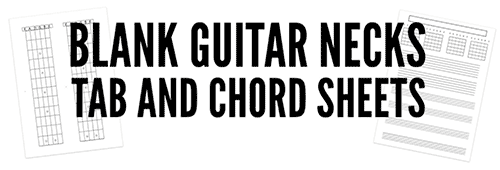
2. Blank Guitar necks and Chord Grids allowing you to pre-prepare material for favourite or often used lessons or songs/riffs etc.

3. A set of Backing Tracks with Handouts that you can give to your students making it easy for them to practice between lessons (which is really where they really get to improve)
4. A range of “fallback” guitar lessons (with pre-prepared handouts etc) that you can give out if a student needs a little more time to work onthe material covered in previous sessions
At first glance this can seem like a big and frightening subject but if you view the situation from the point of view of someone who wishes to master the guitar (rather than that of someone like us who wishes to use musical skills to ward off or escape from a day job) then deciding what to teach novice guitar players can become pretty simple and straightforward.
People who are in the early stages of learning the guitar wish to be able to make noises that they like the sound of and can recognise as quickly as possible. Students want to play songs (or fragments of songs) that they are already familiar with. If they can come to their next guitar lesson with the ability to make a noise that they like that they couldn’t make before then they generally tend to be pretty pleased about the whole thing.
Our job as a guitar teacher involves no more than to help them to get to that point as quickly as possible by presenting them with a series of challenges appropriate to their current ability.
The Three Pillars Of A Guitar Teaching Job
Learning to play the guitar (or any other instrument for that matter) can be divided into acheiving progress in three main areas. If the content of your lessons is at an appropriate level in accordance with the three following areas then you are most probably "doing it right"
1. Theoretical Knowledge
2. Technical Ability
3. Development of Repertoire
Theoretical Knowledge
Don't teach music theory at the start!
Knowledge of music theory as it applies to guitar is important but being as it would seem pretty pointless to know the theory behind all of the music that you can’t yet play this can wait until some capability on the instrument has been achieved.
Technical Ability
This involves the development of motor skills and involves the student in making and refining particular physical movements with relation to the instrument
Repertoire
This involves the development of motor skills and involves the student in making and refining particular physical movements with relation to the instrument
The more switched on reader might have noticed that two of the above definitions are the same and the real eggheads might have sussed out that if there were a system of combining a sound technical approach with the development of repertoire then we could end up “killing two birds with one stone”.
To develop both areas effectively why not teach them simple songs (or fragments of songs) that combine the acquisition of technique with the development of a repertoire that will make them feel pretty good about themselves and their development as a musician
Having arrived at a point where we have decided that this is a good idea all we need to do is to identify the right chords and to come up with a bunch of songs or chord sequences that feature those chords? The chords of the CAGED SYSTEM
Get your guitar students off to a Flying Start (from the very first session)
Using The CAGED SYSTEM of Open Guitar Chords
There exists an established method of teaching and learning guitar called the “Caged System” which when fully developed can be used to master the entire neck of the instrument but which in it's basic form sets out a bunch of open chords generally regarded as being the best and easiest ones for a novice guitar player to cope with and which offer the potential to make rapid progress.
The chord shapes are those of C A Am G E Em D and Dm (hence CAGED-Get it?).
If you were to look at the caged system of guitar playing (and teaching) another way it could just as easily be called the (much less memorable -I admit) “Whatever you do don’t try to get them to play an F chord system”
Guitar teacher's need to be aware of the things that a student should not be wasting their time, enthusiasm and effort on as well as presenting them with suitable things to study and the F chord is a case in point.
If you think about it for a while to ask someone who has little or no experience of holding down a single string to suddenly start to clamp down two strings with a single finger is really pretty cruel and it is possible to end up with a situation where an up till now perfectly well motivated and potentially capable guitar student becomes convinced that they will never be able to play the instrument for as long as they live.
Unfortunately, it is the situation that loads of printed guitar tuition material kicks off from the perspective of music theory and it’s relation to the keys on a piano or the notes on a musical stave.
For this reason because the key of C has no #s or b’s it is certainly the easiest key to understand but its chords (or rather the F chord which is a a very important chord in the key) is just about impossible for an novice guitar player to form.
To be aware of the danger of introducing the F chord (and others like it) too early is vitally important to anyone teaching guitar. There can be little guaranteed to dampen the enthusiasm of a novice than presenting them with an apparently simple challenge that they find way too difficult.
If you want to take a trip back in time and recall what it was like to be a total beginner on the guitar just flip it around. If you are right handed just fret (rather than strum) with your right hand and strum (rather than fret) with your left. Spend a few minutes trying to play some of your favourite simple music. It is a great way to develop an understanding of where your customer is at
How to become a Guitar Teacher
Good songs to use with your beginner guitar students once they have learned to move between four chords in time to music
The first couple of months of a novice guitarist’s career could (and probably should?) be largely taken up with becoming firstly aware of, and then familiar with the chords that make up the caged system. Some of the CAGED chords work particularly well in the key of G and by becoming familiar with just four of them (G Em C and D) a student can develop an extensive and varied repertoire of stuff to practice and play.examples include
“His latest Flame”
G to Em
“Itchycoo Park”
G to Em (Chorus)
“The Locomotion”
G to Em (verse:1 bar each chord)
“Shout”
G to Em
“Hallelujah”
G to Em (ok I know its Em7 but it still works?)
“You Really Got A Hold On Me”
(G to Em)
“Stand By Me”
(All four chords in the order presented)
“Every Breath You Take”
(All four chords in order)
“Simply The Best”
(All for chords in order)
“Blue Moon”
(All four chords in order)
“Crocodile Rock
(All four chords in order)
“Hungry Heart”
(All four chords in order)
The above list is just intended to help the student to realise that they are capable of making rapid progress. Some of the songs detailed above are not in the original keys of the recorded versions and there are occasionally some simplifications going on there.
The Caged guitar chords give you access to quite literally hundreds of thousands (and possibly even millions - I never really got around to counting them!) of songs (or recognisable fragments of songs) and they can be used to form the building blocks of a sound technical and theoretical approach to teaching and learning the guitar
We also offer a range of Guitar Backing Tracks and Handouts that you can distribute to your students for those teachers who like to work that way
By employing the Caged Guitar system alongside a gradual introduction to single string riffs, patterns and scales you can create the beginnings of a well-rounded guitar player and the start of a successful new business into the bargain
This article (by Rob Hylton of teachwombat.com is an extended version of an article published on Ultimate guitar.com
The article gained a five star rating among the readers and has an approval rating of 9.3 (on a ten point scale) If you would like to read that article (along with some insightful and relevant comments by the many ultimate Guitar.com visitors who reviewed it) just go to ultimate guitar-columns and enter the search term "teach guitar"
How to become a guitar teacher
In order to become a guitar teacher you will need a set of resources designed to make your teaching as stress free, effective and enjoyable as possible. If you decide that this material could be for you then you will be able to download ............
The Printable Guitar Teacher's Toolkit

100 printable sheets covering Open Chords-Bar Chords-Scales- Modes- Blank Fretboard and Chord Grids Teaching Diary and Business Card Designs
The Backing Tracks and Handouts Package

35 Backing Tracks and over 80 Handouts to go with them. An invaluable aid designed to help you to teach both rhythm and lead guitar." The backing tracks are a great way of ensuring that your students develop the ability to actually play music rather than just learn a bunch of random chords and licks "If they can't play in time then they can't play"
The Kids Guitar Teaching Resources

A whole load of resources especially prepared for younger guitar students. Some of the materials feature colour in cartoons and one finger chord shapes to get kids off to a flying start on guitar
Plus 100 Giant (letter sized) Chord Grids

laminate them in order to help you to teach group guitar lessons, distribute them to your students or just stick on your teaching studio wall What one of my students described as "The Coolest Wallpaper on the planet"
The Bass Guitar Teacher's Toolkit

A freebie featuring Over 60 Bass teaching Handouts covering Scales, Chords, Fingering Exercises etc

